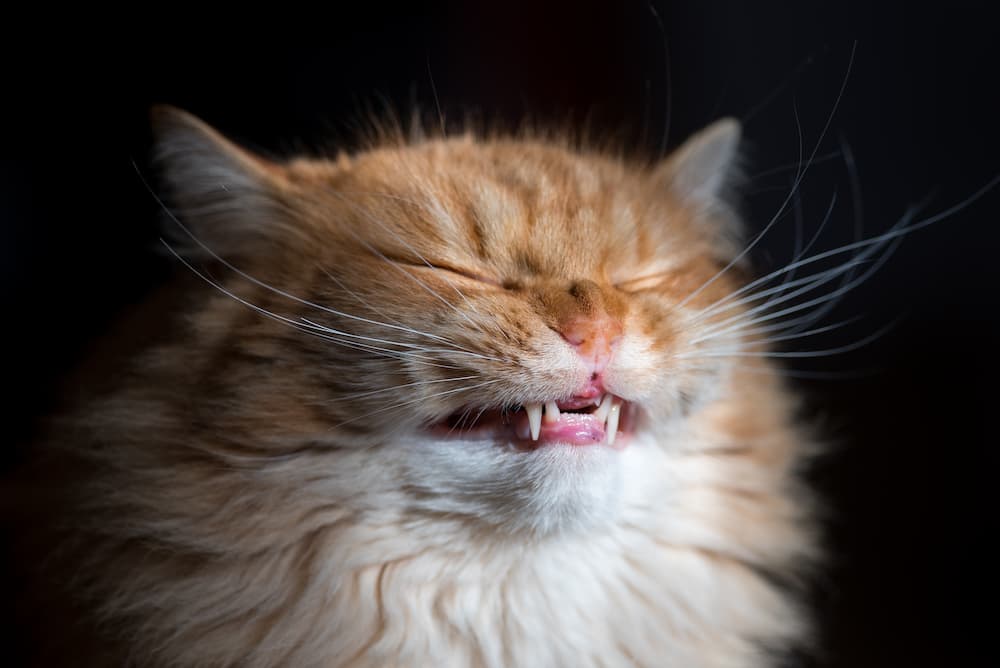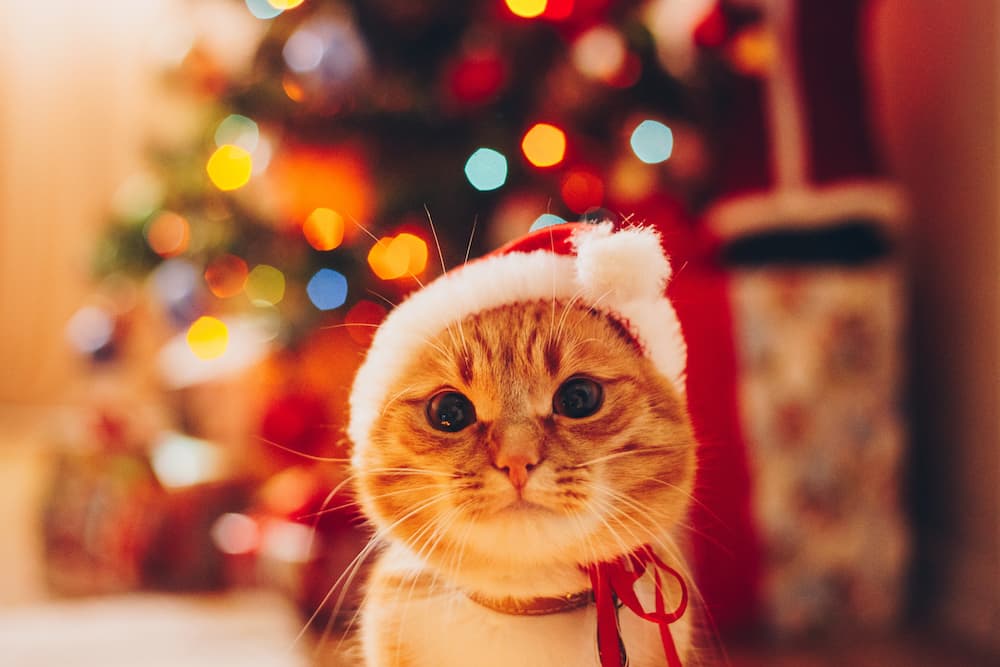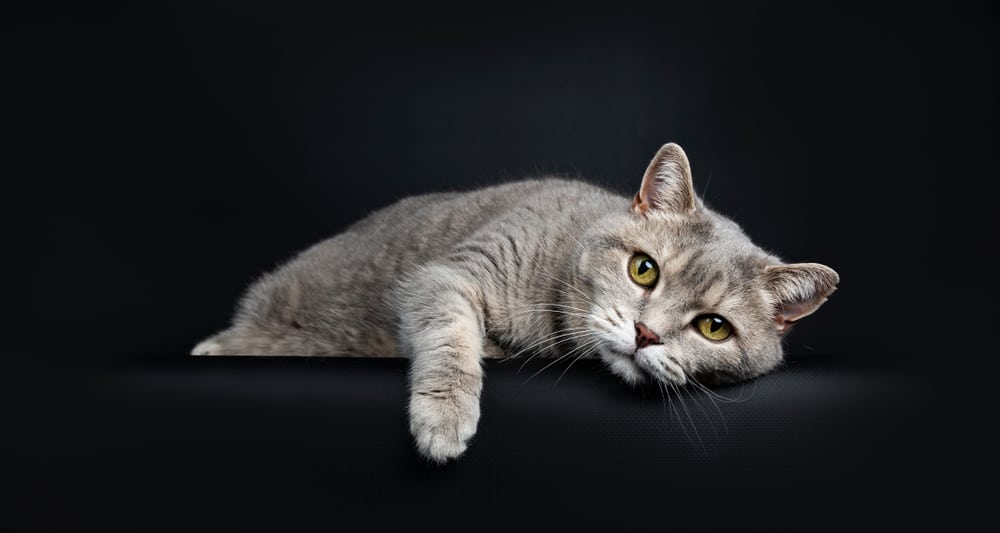As we swap out our light jackets for heavy coats, we must remember that our furry feline companions also feel the chill. While they might sport fur coats all year round, cats, just like their human counterparts, are susceptible to certain health concerns during the colder months. As doting cat parents, it’s crucial to understand these potential issues – not only to keep Fluffy’s tail wagging but to ensure the purr-fection of their overall health. So, curl up with your kitty, a warm blanket, and let’s navigate the winter wonderland of cat health together!

Frostbite and Hypothermia
Let’s first talk about frostbite – a chilling winter foe that’s as cold-hearted as they come. You might think that those fuzzy ears, the swishy tail, and those adorable paws are just cute accessories to a cat’s alluring charm, but they are, unfortunately, the most vulnerable to frostbite. It’s as if nature played a cruel joke on our feline friends! Look out for pale or grey skin, and in severe cases, ice formation on their skin. Remember, though, that while cats may have nine lives, they certainly don’t have nine tails or ears, so let’s keep them safe, shall we?
Moving on to another cold-weather nemesis – hypothermia. Just like that unannounced guest who turns up at your holiday party, hypothermia can sneak up on cats exposed to the cold for too long. It comes in stages – starting with mild shivering and leading to a sluggish kitty that we all know isn’t their usual playful self. If you think your cat’s caught the cold bug, it’s time to seek veterinary attention faster than a cat pounces on a laser pointer. After all, there is no ‘purrfect’ health without warmth and comfort!
Dry Skin and Coat Issues
Just as frosty winter air can leave our own skin feeling more like sandpaper than silk, it can also take a toll on our cats’ skin and coats. Don’t be surprised if you start noticing a bit more flakiness (and we’re not talking about their attitude towards playing fetch). Dry, itchy skin is common in cats during colder months, which can lead to dandruff-like flakes. And while your cat might try to rock the ‘bedhead’ look with their fur appearing dull or brittle, it’s a sign that they’re having coat issues due to the dry winter season.
Now, how do we keep our feline companions looking as glamorous as the day they first caught our hearts? Maintaining a proper grooming routine is the secret sauce to a healthy winter coat. Regular brushing not only helps in removing dead hair and skin but also improves blood circulation, keeping their coat shiny and lush. Don’t forget those cat-safe moisturizers and supplements too! They can help nourish your cat’s skin and protect their coat, turning them into the envy of the neighborhood cats. And remember, a well-groomed cat is a happy, purring cat. So, let’s give our furry friends the royal grooming treatment they deserve this winter!

Arthritis and Joint Pain
Brrrr! As mercury takes a nosedive, arthritis in cats doesn’t just roll over and play dead. Just like that creaky door hinge in winter, cold weather can cause our aging feline friends to feel a bit more stiff and uncomfortable. If your cat starts moving slower than the line at the vet’s office or exhibits difficulty jumping (without the usual feline finesse), they might be dealing with arthritis. We all know there’s nothing more heart-wrenching than watching our purrfect companions experience discomfort. But don’t fear! There are plenty of strategies for managing and alleviating joint pain, from heating pads to gentle massages. After all, isn’t a little extra pampering what a cat expects anyway?
Now, it’s time to talk about the importance of regular vet checkups – particularly for our senior cats. Just as we wouldn’t skip a wellness check, our whiskered buddies also need their routine check-ins. Consider it your cat’s very own ‘spa day’ (minus the cucumber slices and bathrobes). Regular vet visits can help detect any potential health problems early on and ensure that our cats live their nine lives to the fullest. So, make a date with your vet this winter season. Your cat might not send you a thank-you card, but trust us, they’ll be purring their appreciation.
Upper Respiratory Infections
As we crank up the heat indoors during the chilly season, it’s important to remember that close quarters with reduced ventilation can increase the risk of upper respiratory infections in our feline friends. We may think we’re just providing a cozy retreat from the winter’s icy grip, but this environment is more like a Petri dish for cat colds! Keep an eye out for symptoms such as coughing, nasal discharge, and a loss of appetite. To combat this, ensure there’s proper ventilation and humidity control in your home. Much like the way we enjoy a good, warm cup of tea on a cold day, our cats appreciate a healthy, comfortable living space in which to enjoy their grooming sessions and midday naps.
Weight Management
Let’s face it, we all have a tendency to pack on a few extra pounds during the colder months – and our beloved feline companions are no exception. When the weather outside is frightful, cats are less likely to engage in their usual adventures, which can lead to a bit of weight gain. It’s as if they’ve adopted the ‘more to love’ philosophy! But remember, just because they’re lounging on the couch more doesn’t mean their diet needs to be super-sized too. Adjusting feeding habits to match their decreased activity level can help keep their figure sleek and svelte. Consider promoting some exercise too; an impromptu play session with a laser pointer or a new toy can turn your living room into a feline fitness center. Here’s to a healthier, happier winter for our chubby tabbies and portly Persians!

Outdoor Hazards
Braving the great outdoors becomes a whole lot trickier for our adventurous feline friends once Jack Frost comes to town. One of the key hazards to be mindful of is antifreeze toxicity. Cats, being the curious critters they are, might be drawn to the sweet taste of antifreeze but, unfortunately, it’s extremely toxic to them. Even a few licks can be enough to send them to the emergency room – not exactly the winter wonderland experience you’d want for your purring buddy! Additionally, ice-melting substances commonly used during winter can pose another threat to those soft, fuzzy paws. So, it’s time to play superhero and protect those perfect paws – consider cat-safe ice melts or special booties for their outdoor excursions. Remember, a little paw-tection goes a long way in keeping our whiskered wanderers safe and sound!
Importance of Adequate Shelter
During the teeth-chattering winter months, every cat, whether they’re the adventurous type or homebody, deserves a cozy castle to retreat to. Enter the insulated cat house – the purrfect sanctuary for ferals and furry friends who love to explore the great outdoors. Made to withstand the rigors of winter, these shelters can be as posh as your cat’s personality, providing warmth and comfort against the chill. And if you’re in the DIY mood, why not transform a simple box into a cozy cat haven? Pile in some blankets, throw in a heating pad, et voila! You’ve got yourself an inviting little nook, perfect for cat naps and bird-watching (through the window of course!). So, this winter, let’s ensure our feline friends have a snug spot all to themselves – after all, every king or queen needs their castle!
Conclusion
As we wrap up our winter wellness guide for our feline friends, let’s just paws and recap. From keeping a keen eye on potential signs of arthritis to ensuring regular vet check-ins, we’ve got the responsibility to keep our purr buddies in tip-top shape. Bear in mind that even though our homes feel warmer and cozier during winter, they can also harbor increased risks of upper respiratory infections. As we’re enjoying our hearty winter feasts, let’s not forget to monitor kitty’s weight and promote some fun indoor gym sessions (catnip, anyone?). And for those daring adventurers braving the icy outdoors, remember, our vigilance towards antifreeze toxicity and other winter hazards is their best line of defense. Providing a snuggly, insulated shelter can turn a frosty winter’s day into a cozy catnap opportunity. Let’s meow for a healthier, snugger winter, where every purr tells us we’re doing a great job!
The Catington Post is reader-supported. That means, if you make a purchase through links on our site, we may earn an affiliate commission. All images and names which are not the property of The Catington Post are the property of their respective owners.







